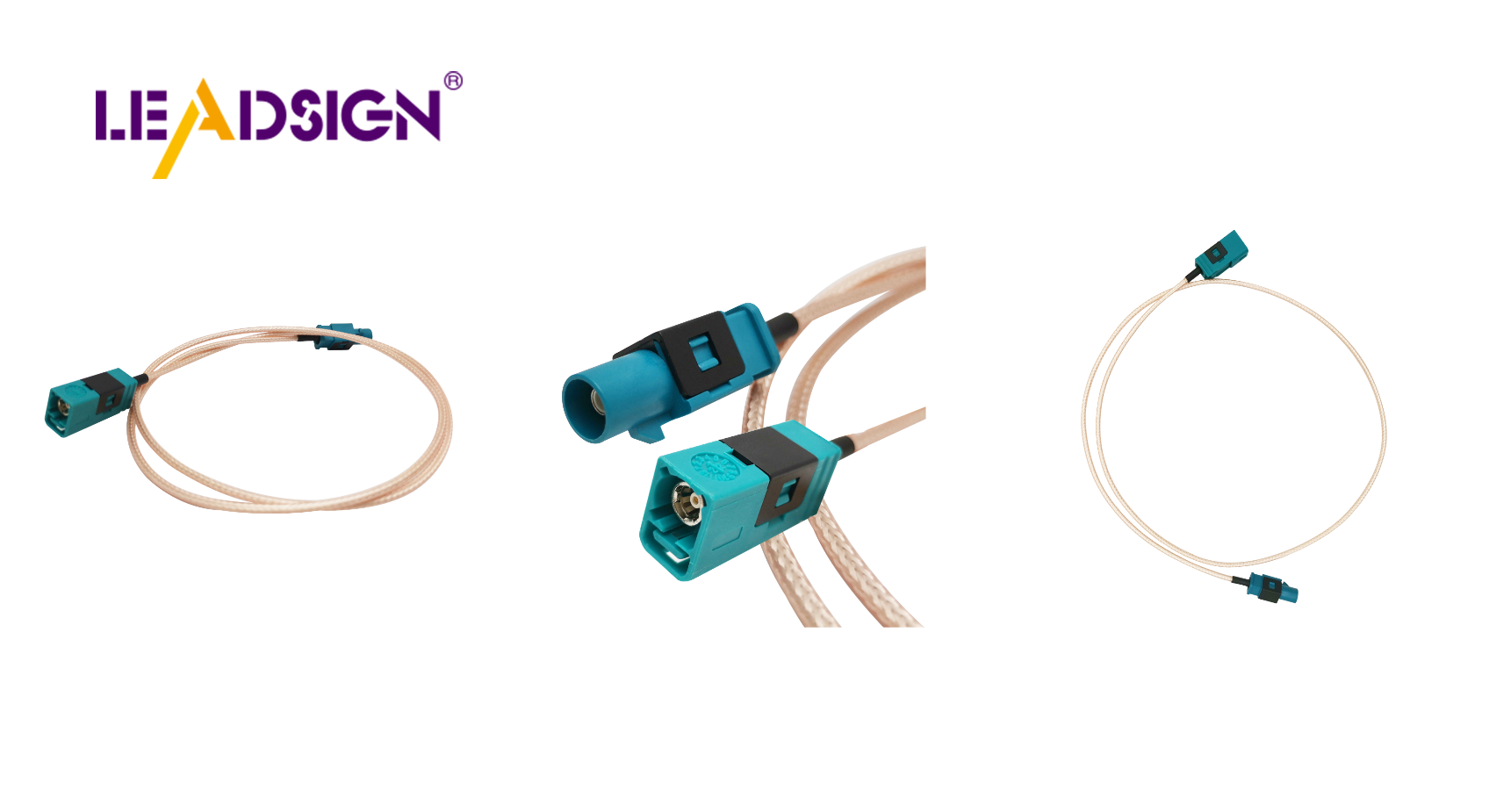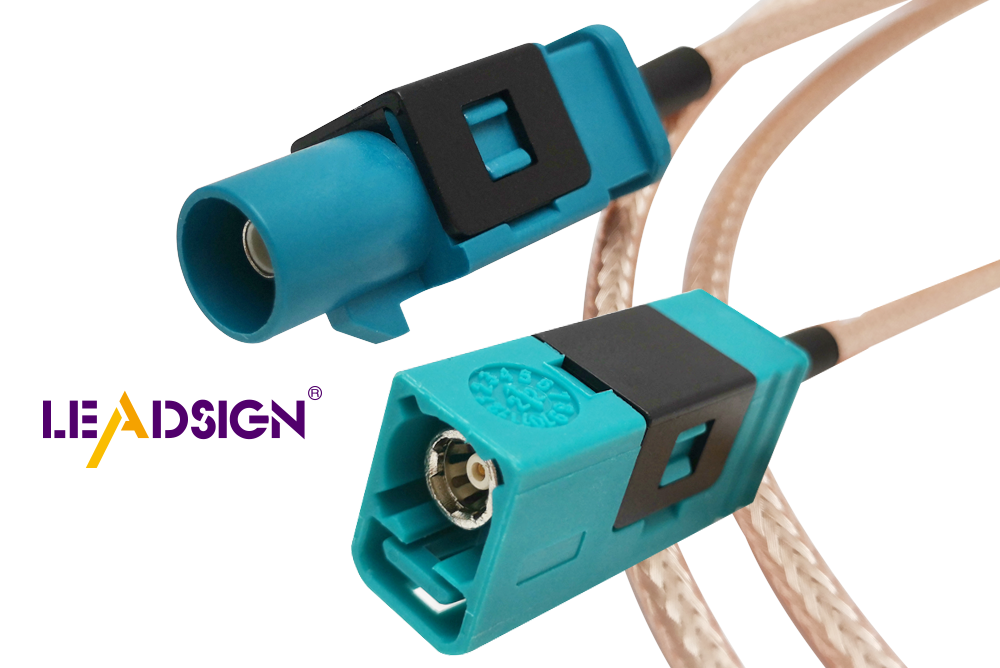Understanding the Most Used Electrical Connectors in Car Systems

Cars today need various types of connectors electrical to work well. You often see connectors like OBD-II, USB ports, and sensor connectors. These connectors are key parts of your car's electrical system. They help different parts talk to each other. For example, USB connectors let you use phone apps in your car, making driving more enjoyable. Multi-pin connectors manage complex systems, ensuring everything functions correctly. Understanding these types of connectors electrical helps keep your car running well and reliably.
Key Takeaways
Familiarize yourself with common car connectors like OBD-II, USB, and sensor connectors to better understand your vehicle's electrical systems.
Regularly inspect and clean your car's electrical connectors to prevent issues and ensure optimal performance.
Use the right tools, such as contact cleaner and brushes, to maintain connectors and extend their lifespan.
Recognize signs of wear, such as rust or loose pins, to identify faulty connectors early and avoid costly repairs.
Understand the role of connectors in diagnostics; they are essential for accessing real-time data from your car's computer.
Choose high-quality connectors to prevent electrical failures that could lead to safety hazards or performance issues.
Stay proactive about connector maintenance to enhance your car's reliability and longevity on the road.
Overview of Common Electrical Connectors

Knowing different connectors electrical in cars helps you understand car systems better. Let's look at some common connectors you might see.
OBD-II Connector
Purpose and Functionality
The OBD-II connector is important for checking car problems. It lets you see data from the car's computer. This helps you check how the car is doing and find problems. It works with many tools, so both mechanics and car owners need it.
Typical Locations in Vehicles
You usually find the OBD-II connector under the driver's dashboard. It's placed there so you can easily use it without getting in the way of driving.
USB Ports
Purpose and Functionality
USB connectors are now common in new cars. They let you charge devices and move data. With USB ports, you can connect phones, making driving fun with apps and music.
Typical Locations in Vehicles
USB ports are often in the center console or dashboard. Some cars have them in the back seats too, so everyone can charge their devices easily.
Sensor Connectors
Purpose and Functionality
Sensor connectors send data from sensors to the car's computer. They help check the engine, fuel use, and safety. These connectors keep your car running well.
Typical Locations in Vehicles
Sensor connectors are all over the car, especially in the engine area and near important parts like the exhaust. They are placed to collect and send data correctly.
Types of Connectors Electrical
Knowing about different connectors electrical is important for your car's health. Let's look at some common ones you might see.
JST Connectors
JST connectors are small and very useful in cars. They fit in tight spots. These connectors keep parts like sensors and lights connected. They help your car's electronics stay neat and work well.
Features of JST Connectors:
Small size saves space
Locks in place to stay connected
Different pin types for various uses
JST connectors are handy in your car. They keep things tidy and working right.
Dupont Connectors
Dupont connectors are simple and easy to use. They are good for testing and trying out new things. These connectors work well for small jobs, like connecting sensors.
Key Characteristics:
Easy to plug in and out
Good for small power jobs
Used for testing and trying
In your car, Dupont connectors are great for quick fixes. They are liked by many people.
Molex Connectors
Molex connectors are strong and used a lot in cars. They work in many places, like engines and lights. Molex connectors help send power and data, keeping your car running well.
Advantages of Molex Connectors:
Strong and last long
Many types for different needs
Good for power and data
Molex connectors are key for your car's systems. They are tough and work in many ways to keep things connected.
Uses of Electrical Connectors in Cars
Knowing how connectors work helps you understand cars better. Let's see how they are used.
Role in Car Checks
Connectors are important for checking cars. They let you use tools to see how your car is doing.
Why They Matter for Everyone
For mechanics and car owners, connectors like OBD-II are a must. They show real-time data from the car's computer. This helps find problems early, saving time and money.
Tools for Checking Cars
Tools for checking cars need these connectors. Things like code readers plug into the OBD-II. They help you see error codes and check systems. This keeps your car running well.
Effect on Car Performance
Connectors affect how well your car works. They help power and data move smoothly, making the car run better.
How Connectors Help Systems Work
Connectors like Molex are key for good system work. They make strong links that stop power loss. This helps with fuel use and makes the car run smoothly.
Connectors That Help Performance
Some connectors help with performance. Molex connectors are strong and used a lot in cars. They fit many needs, keeping systems working well. JST and Dupont connectors also help by linking sensors and parts, boosting car performance.
Maintenance Tips for Electrical Connectors
Keeping car connectors in good shape is important. Regular checks help them work well. Here are some tips to keep them in good condition.
Regular Inspection and Cleaning
Check and clean connectors often. This stops problems before they start. It keeps your car's electrical parts working well.
Tools and Techniques
You need a few tools to check and clean connectors. A flashlight helps you see small spaces. A brush or air can remove dust. Use contact cleaner to clean without harm.
Steps for Cleaning:
Disconnect the battery for safety.
Use a flashlight to find dirt or rust.
Apply contact cleaner to clean buildup.
Use a brush or air to clear debris.
Signs of Wear and Tear
Look for wear signs during checks. Bad connectors can cause problems.
Common Signs:
Rust on metal parts
Cracked plastic covers
Loose or bent pins
If you see these signs, replace the connector to keep it working well.
Troubleshooting Common Issues
Problems can happen even with care. Knowing how to fix them saves time and money.
Identifying Faulty Connectors
Finding bad connectors is the first step. Watch for strange car behavior. It might mean connector trouble.
Indicators of Faulty Connectors:
On-and-off electrical issues
Warning lights on the dashboard
Systems or sensors not working
If you think there's a problem, check for damage or rust.
Solutions and Repairs
Once you find a bad connector, fix or replace it.
Repair Steps:
Clean the connector to remove rust.
Tighten loose parts for a good fit.
Replace damaged connectors to fix the issue.
Using the right connectors helps repairs last longer. A well-kept car with good connectors breaks down less.
By following these tips, your car's connectors stay in top shape, helping your car's systems work well.
Understanding car connectors is important for your car's performance. These connectors help parts talk to each other. This makes your car work better and last longer. Check them often and fix any problems you find. This keeps them in good shape. Spot issues early to avoid big problems later. This helps your car's electrical parts last longer. Always be careful and pay attention. Keep connectors clean and tight. This way, you can drive smoothly and safely.
FAQ
What are the most common types of electrical connectors in cars?
In cars, you often see OBD-II, USB ports, and sensor connectors. These connectors help car parts talk to each other. They make sure your car works well and stays reliable.
Why are high-quality connectors important for my car?
Good connectors are important for your car's health. Bad ones can cause weak links, shorts, or even fires. Using the right connectors keeps your car running smoothly.
How do connectors affect vehicle performance?
Connectors keep systems working well by making strong links. Without them, driving could be unsafe. Multi-pin connectors help manage complex systems in cars today.
Where can I typically find OBD-II connectors in my car?
You usually find the OBD-II connector under the driver's dashboard. This spot makes it easy to check your car without getting in the way.
How do I maintain my car's electrical connectors?
Check and clean connectors often. Use a flashlight and cleaner to find dirt or rust. Keeping them clean and tight helps them last longer.
What should I do if I suspect a faulty connector?
If you see problems like flickering lights, you might have a bad connector. Look for damage or rust, and clean or replace it to fix the issue.
Are there specific connectors for different car systems?
Yes, different car parts need special connectors. For example, pigtail connectors link things like headlights. Knowing these helps keep your car safe and reliable.
How do connectors contribute to vehicle diagnostics?
Connectors like OBD-II are key for car checks. They let you use tools to read data from the car's computer. This helps find and fix problems early.
Can I replace connectors myself, or should I seek professional help?
You can change some connectors yourself, but it's good to ask a pro if unsure. Right installation makes sure they work safely.
What role do connectors play in modern vehicle systems?
Connectors are important in cars today. They make sure parts like engines and lights work together well. This keeps your car running smoothly.
See Also
Understanding HSD Connectors Within Automotive Engineering
Why Fakra Connectors Matter in Automotive Technology
Significance of FAKRA Connectors for Automotive Uses

